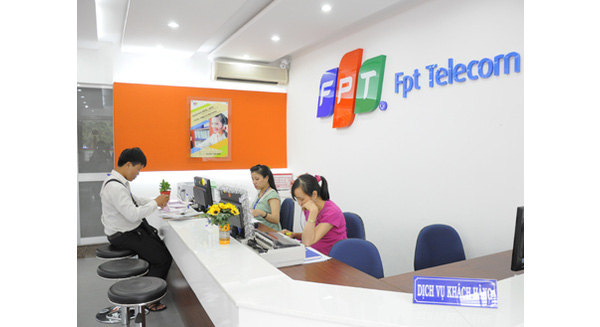
Pham Duc Long, CEO of the Vietnam Post and Telecommunication Group (VNPT), said VNPT will proceed quickly with 4G deployment, while promising to provide the best services to customers.
Long said upgrading from 2G to 3G means shifting from voice to data, while upgrading from 3G to 4G means improving the quality to satisfy the bigger demand for data services.
“VNPT will reorganize the network so as to provide 4G services in the best way,” Long said.
On December 12, Viettel launched 4G services on a trial basis in Vung Tau city. The military telco said it has installed nearly 200 4G base transceiver stations which cover all the residential quarters in Vung Tau, Ba Ria Cities and Long Dien district.
The real data download speed in Vung Tau City is 40-80 Mbps on average. However, the speed in some places can be as high as 230 Mbps, nearly equal to the theoretical speed designed for 4G LTE-A technology.
In an expected move, FPT Telecom has jumped on the bandwagon. The Telecommunication Management Agency has confirmed that FPT Telecom has also asked for permission to try 4G and that the agency is considering FPT Telecom’s proposal.
No one thought before that FPT would join the 4G battlefield, at least for this moment, though FPT Telecom is also a big player in the telecom sector.
Analysts believed that 4G would be the ‘game’ of the ‘big three’ – VNPT, MobiFone and Viettel – which have good infrastructure systems of their own.
Meanwhile, deploying 4G proves to be an impossible mission for FPT, CMC and VTC. 4G can only deployed only with the good 2G and 3G platforms. Therefore, FPT, CMC and VTC are believed to be unable to compete with the ‘big three’.
Though telecom groups are enthusiastic with their 4G plan, the debate about whether to launch 4G at this moment still continues.
An official of the Ministry of Information and Communication (MIC) said Vietnam needs to consider some factors, including the conditions and popularity of the technology, to decide how they should go with 4G. Vietnam once had to pay heavy prices for the deployment of analog mobile service in HCM City, then CityPhone and CDMA-2000 services.
Vietnam hurried to utilize CDMA, which was believed to be a very good technology, applied by 20 percent of subscribers in the world. However, the project on CDMA failed in Vietnam because of the high prices of terminal devices.
